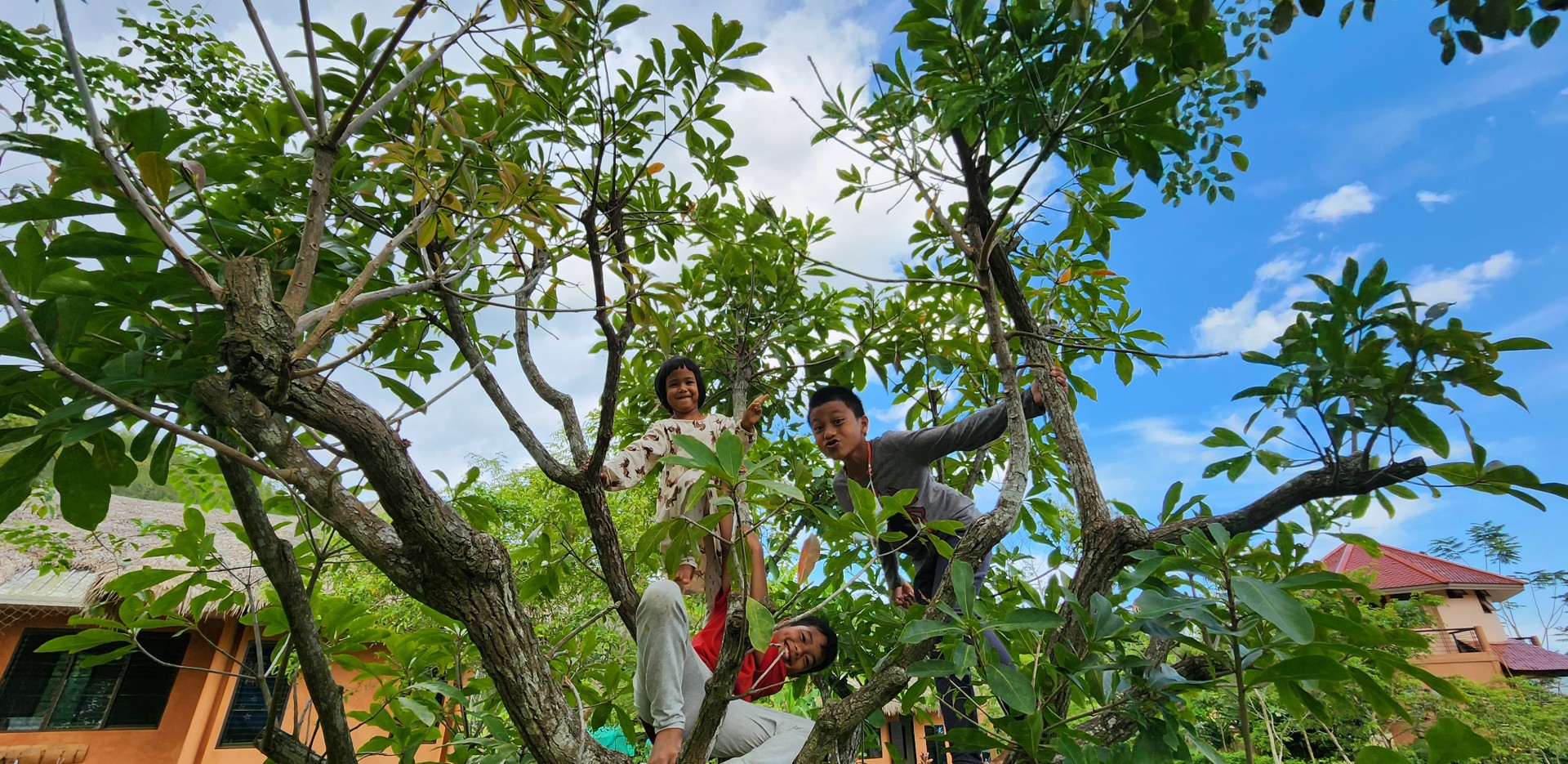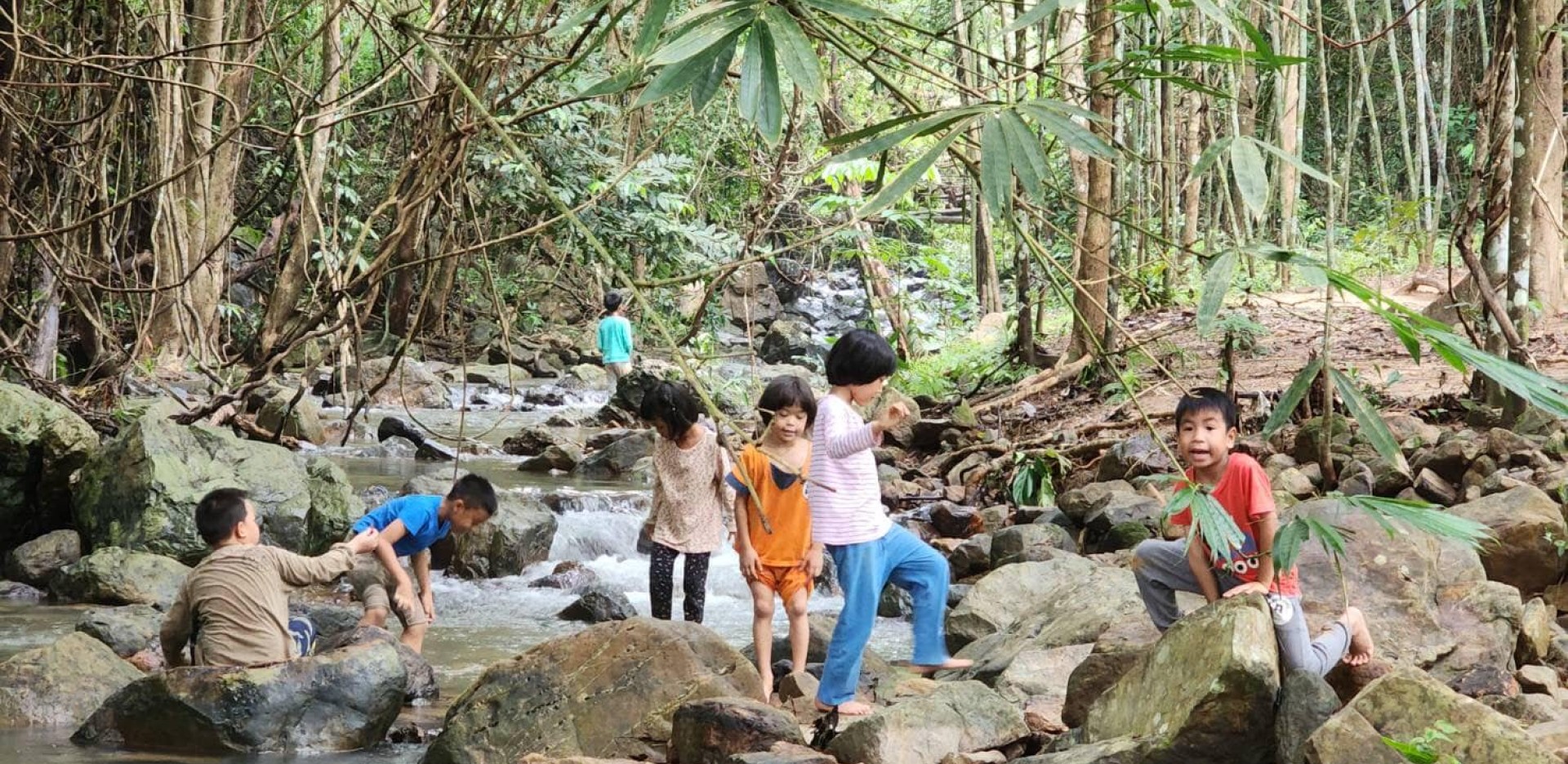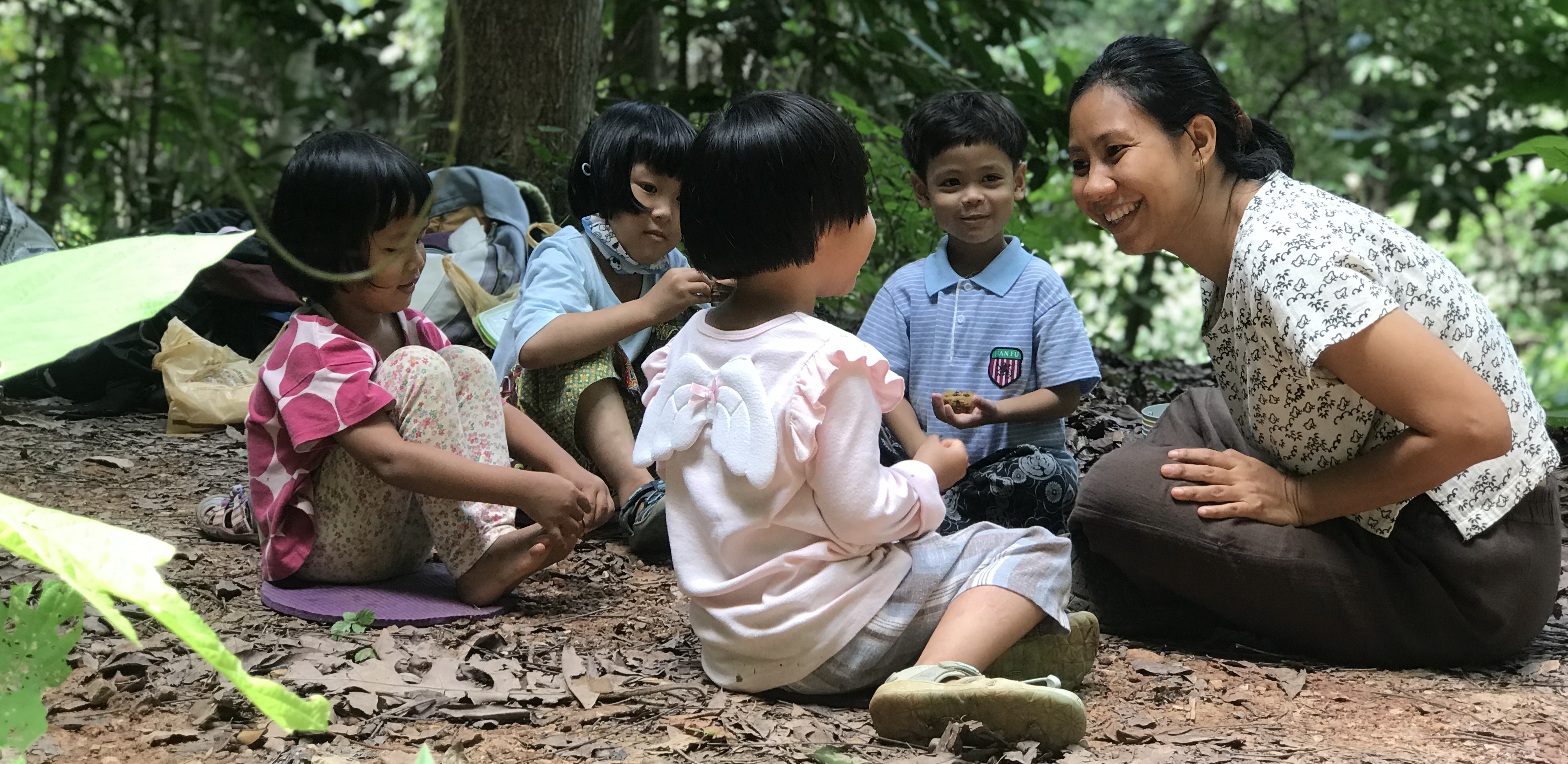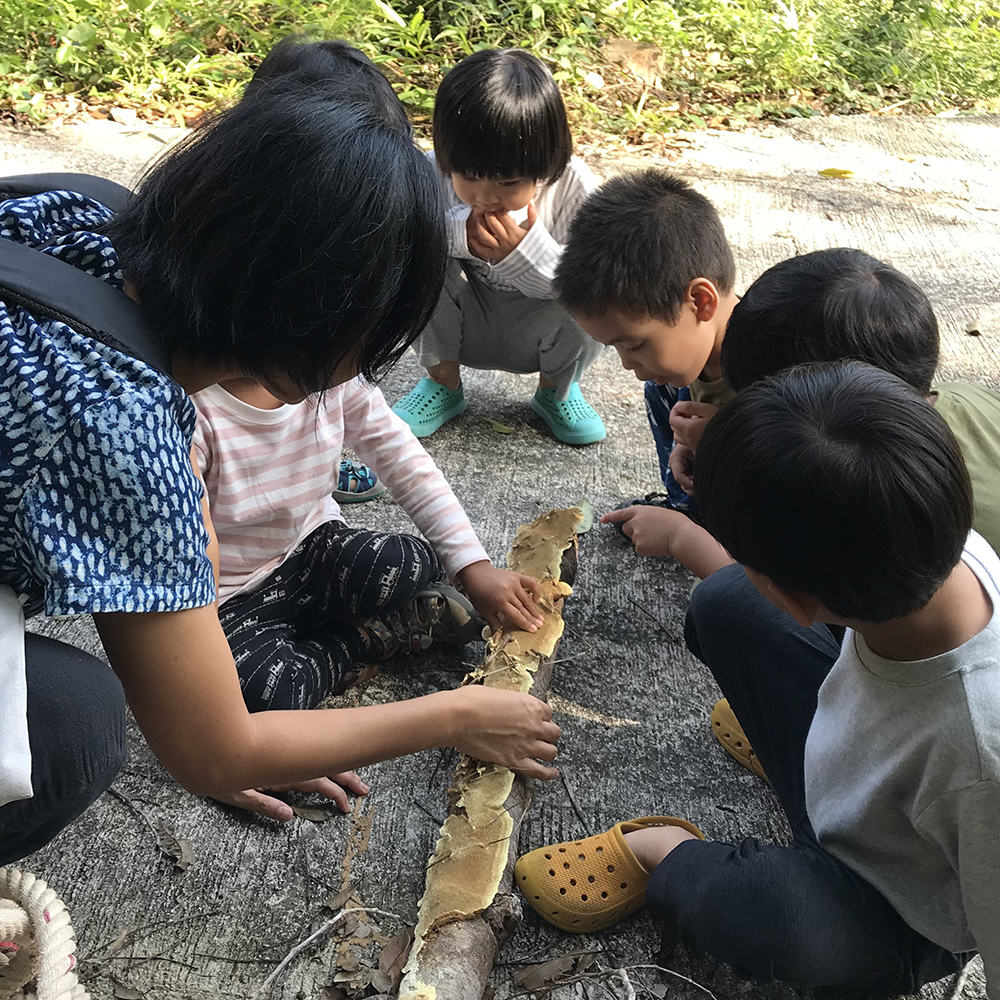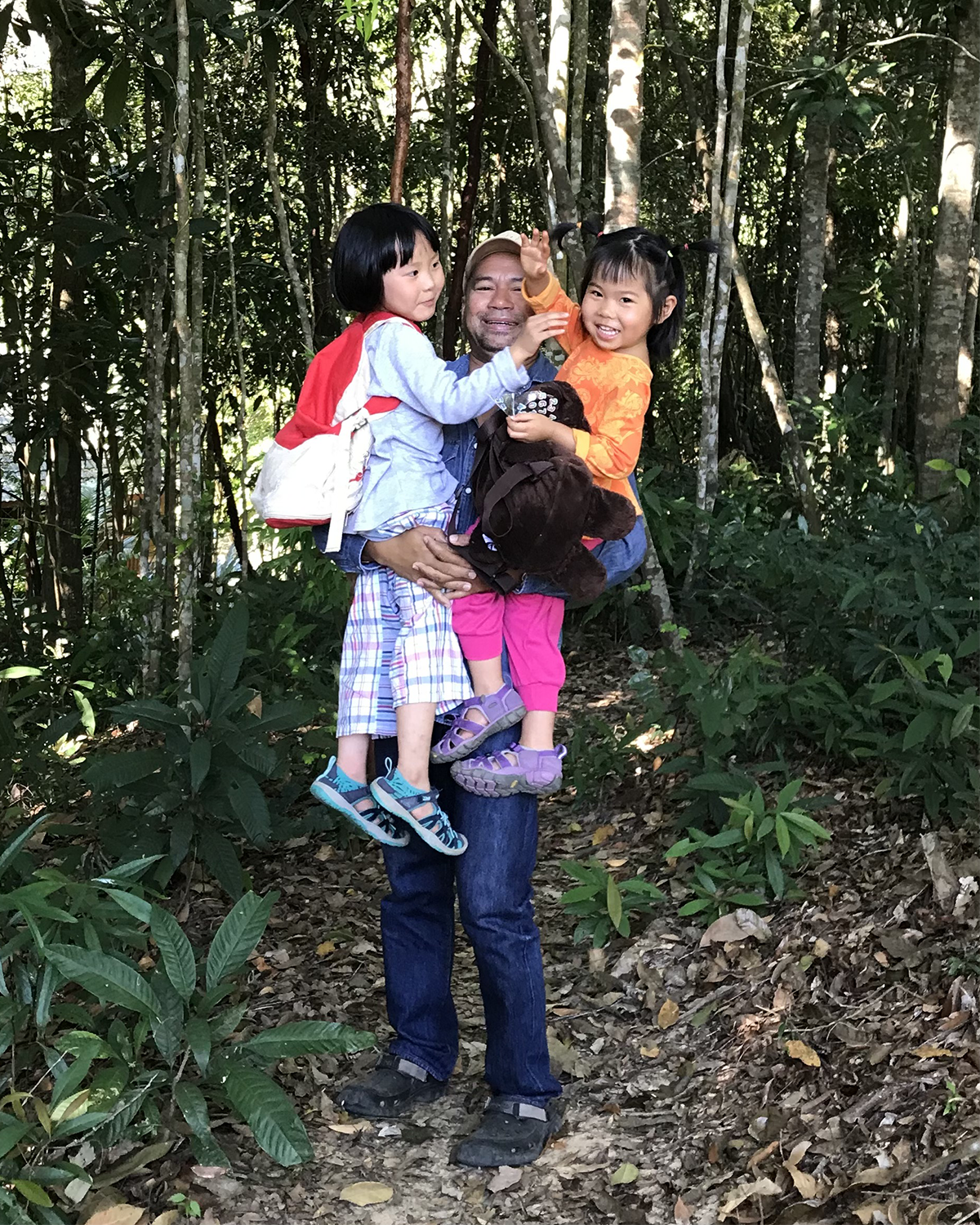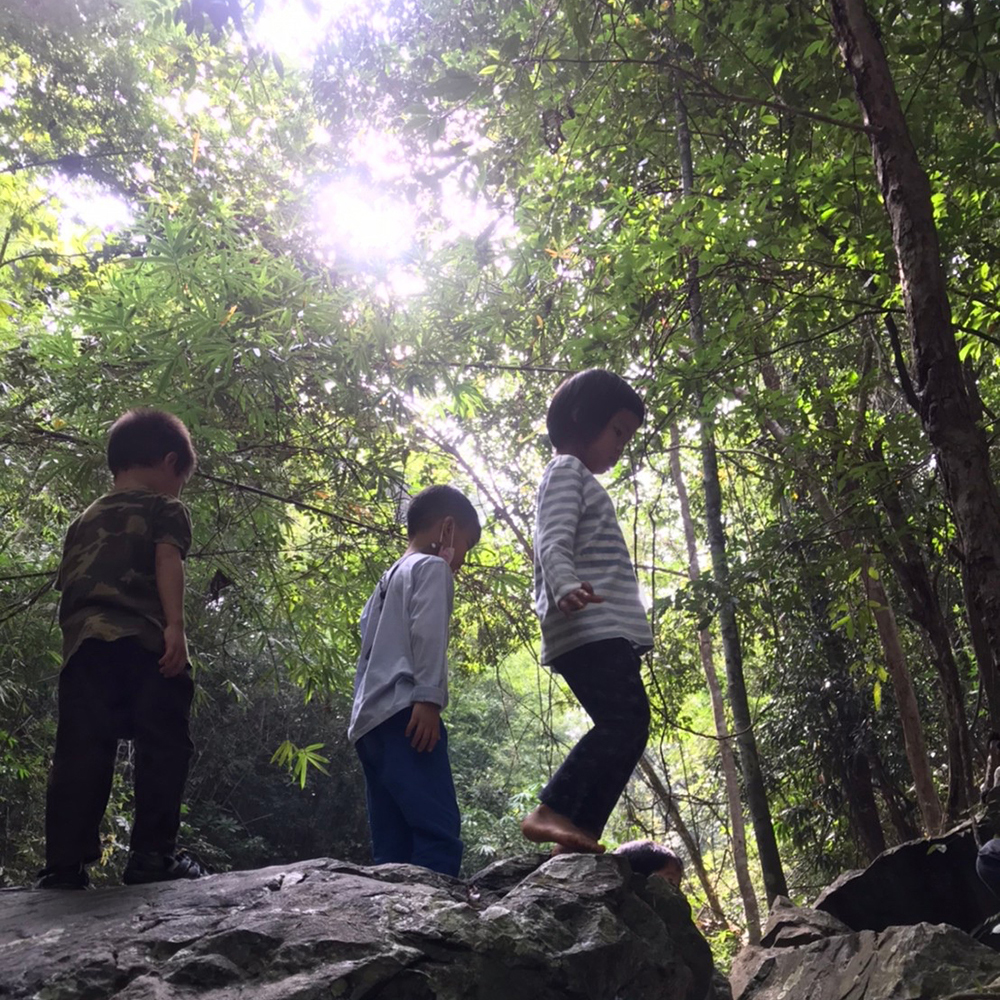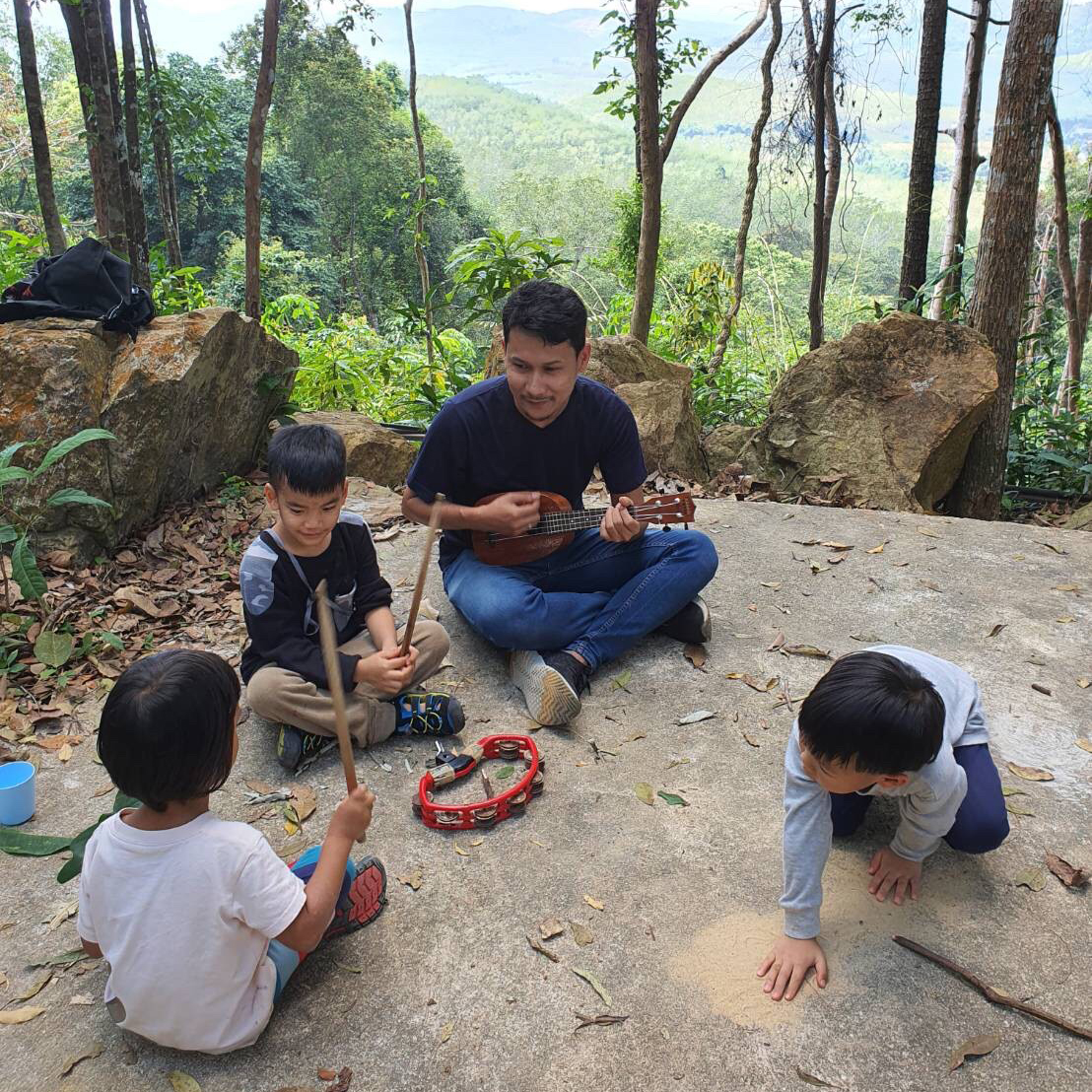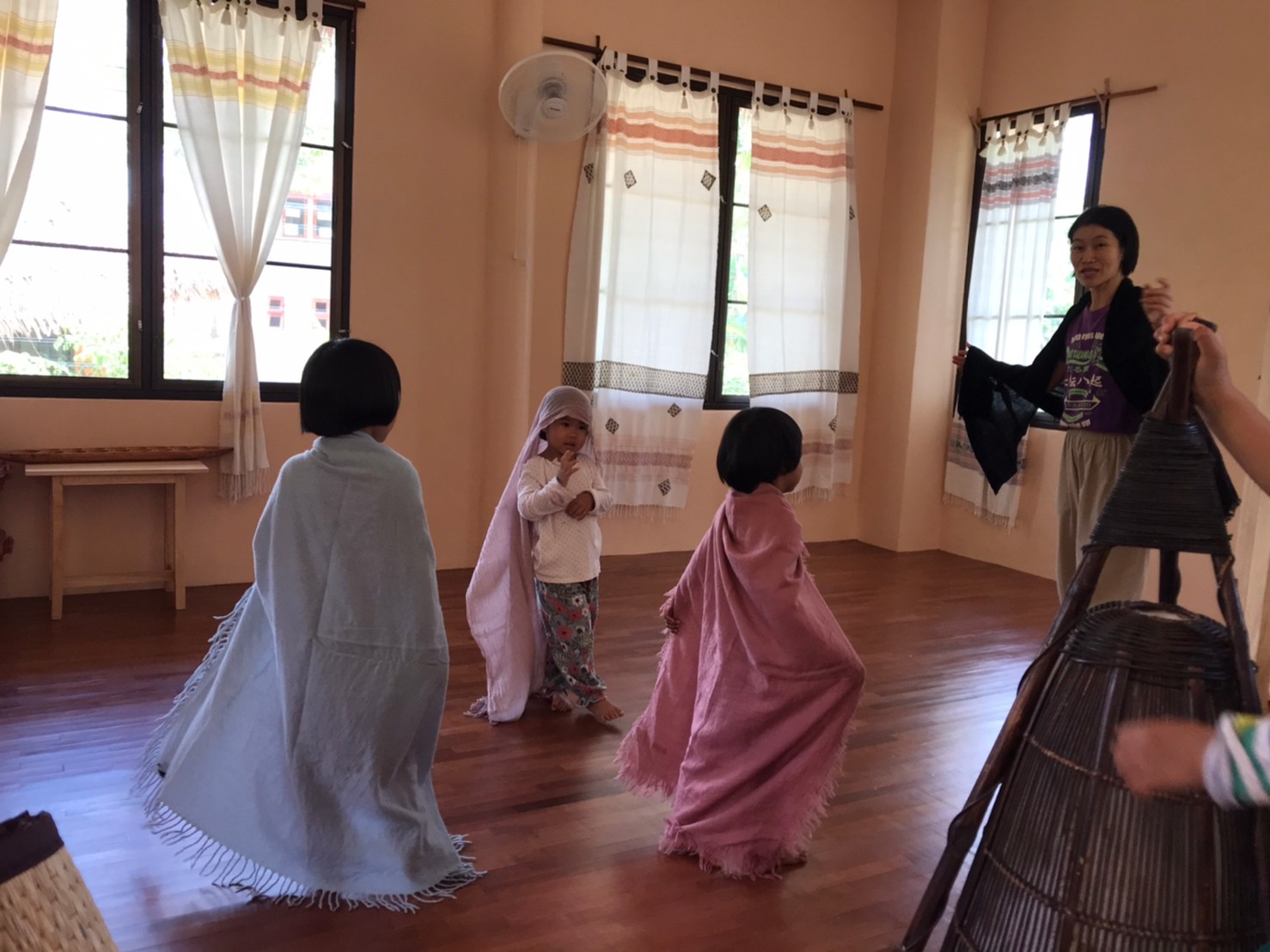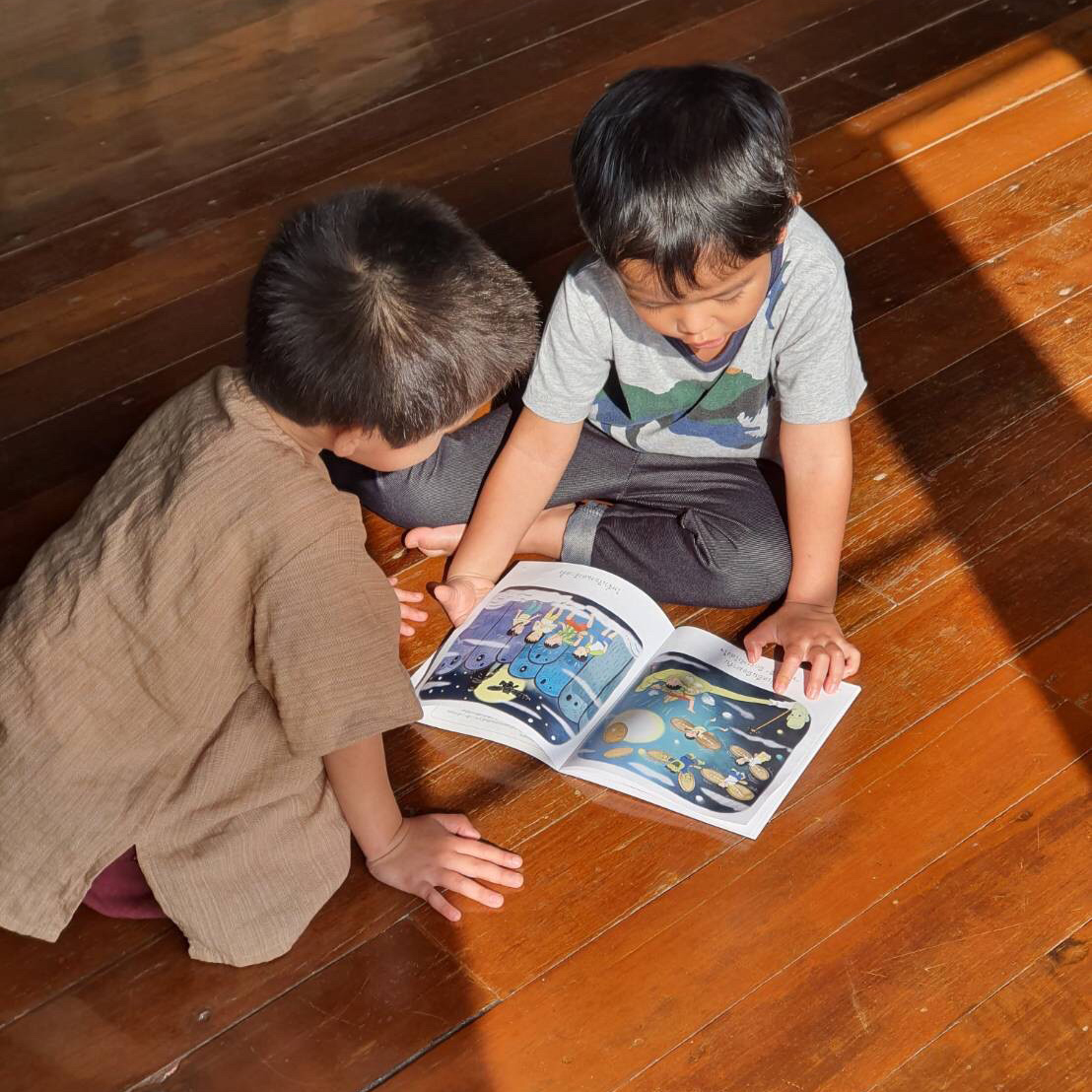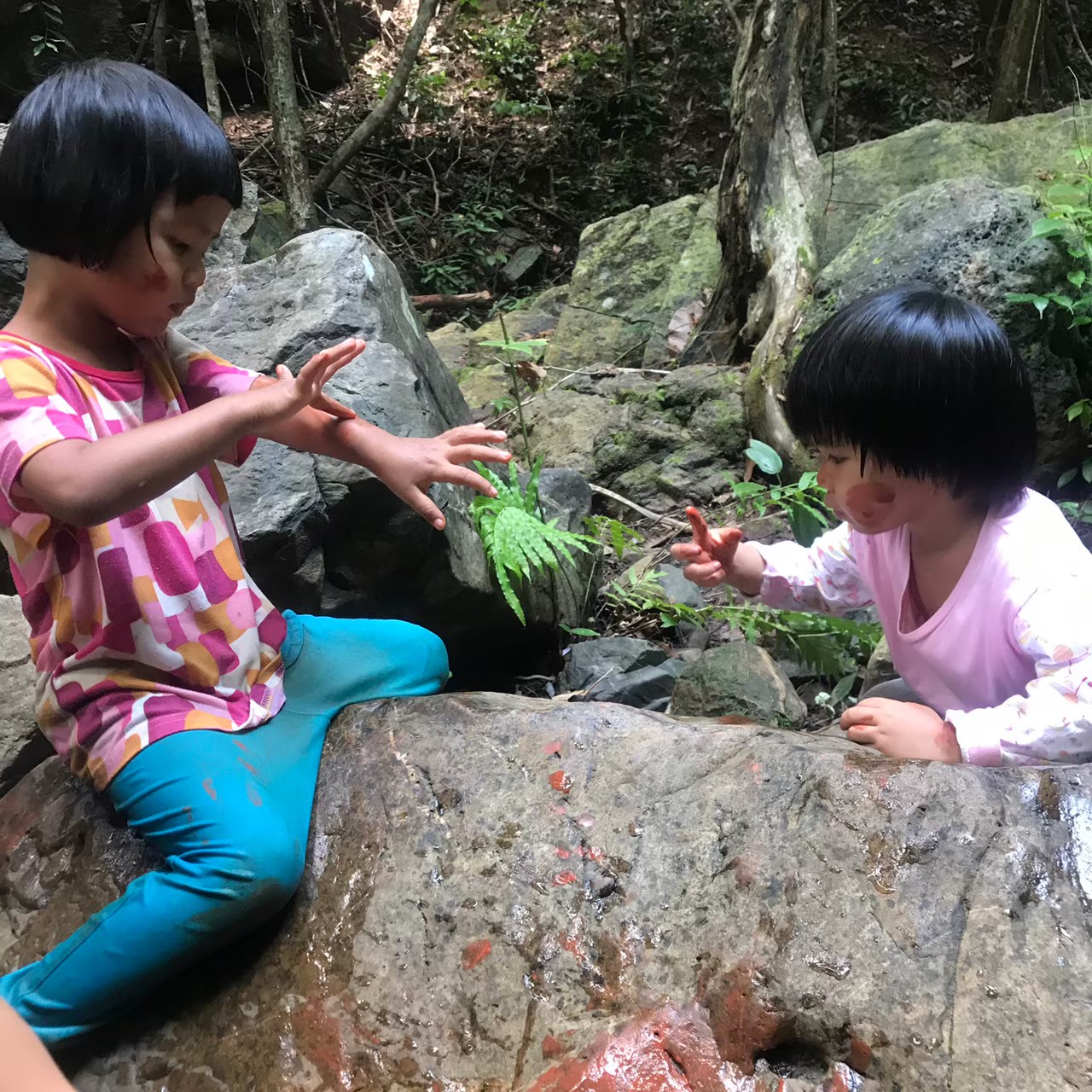Vision
|
Wonder Valley seeks to be more than a school in the traditional sense. We envision a community surrounded by nature for students, teachers and parents to co-create a learning environment of open-minded inquiry and affection. In such an atmosphere we learn about ourselves, the world around us, and our relationship with the world.
|
||
|
|
||
Educational Principles
Learning that nurtures WonderWe see wonder as the very foundation of creativity, motivation and passion in life. In order for wonder to unfurl, children must feel secure in an environment that does not inflict fear by adults or peers, but allows for calmness, warmth and understanding.
|
|
|
|
Learning in NatureModern life has separated daily lives further away from nature. We believe that contact with nature brings about a certain kind of sensitivity and quietness of the mind that is vital for optimal well-being. Quiet time in daily life reduces the constant chattering of the mind to open up space for self reflection.
All phenomena of nature inspire exploration, imagination and creativity. Children need contact with nature to experience all of this so that they come to appreciate their interconnectedness to it and not destroy it.
|
Learning that is responsive to the emergency crisis in the world
|
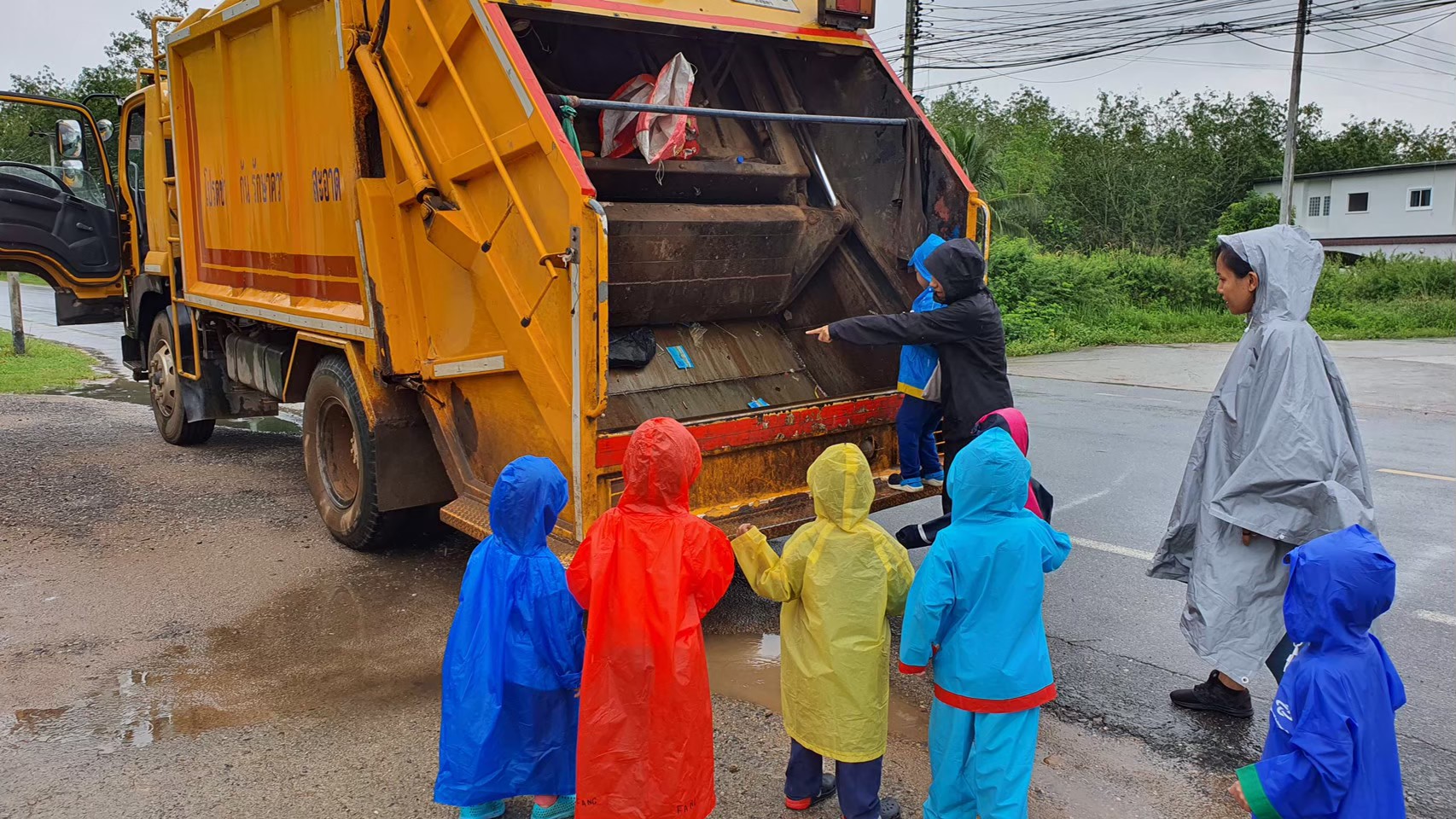 |
|
|
Learning in Relationship
|
Parents as educatorsParents are integral to every child’s healthy development and emotional well-being. But modern life with hectic demands is only making it harder to fulfill this role and adequately respond to the needs of a growing child, particularly their emotional needs. We are often unaware of our own conditioning and as parents if we are not aware of that, it is passed on to our children unknowingly.
Wonder Valley aspires to support parents with tools to understand themselves through self-observation as learners, which in turn helps them to better understand their children, to observe them as they are and to listen without judgement so children feel secure. As partners in learning, constructive feedback from parents is always welcome. Parents will also be included in the assessment of their children and will be asked to do some “homework” during the term. Teachers and parents will meet on a regular basis to update and discuss the learning developments of their child. Parents are encouraged to participate in our “Wonder Forums” once every month, many of which will host prominent thinkers and practitioners in the field of education.
|
|
Teachers as learners |
|
 |
"The right kind of education begins with the educator, who must understand himself and be free from established patterns of thought; for what he is, that he imparts. If he has not been rightly educated, what can he teach except the same mechanical knowledge on which he himself has been brought up? So, our problem is not so much the child, the boy or the girl, but the teacher, the educator, who needs educating much more than the pupil. And to educate the educator is far more difficult than to educate the child, because the educator is already set, fixed. He merely functions in a routine, because he is really not concerned with the thought process, with the cultivation of intelligence." - J Krishnamurti |
|
Wonder Valley teachers will be required to learn the art of observation; meaning that they will need to constantly be aware of their own automatic responses and ready to unlearn the desire to analyze, judge, draw conclusions, hold prejudices and preconceptions about a child or a situation.
We hope to recruit teachers from all walks across the world with a common passion in education and self learning. Passionate in what they do, and with first hand experience in diverse fields in academics and practical, creative areas, such persons will ignite interests in children.
Teacher training programs and workshops attended at various venues will be a regular feature at our school to ensure that Wonder Valley teachers are updated with the latest developments in the field of education, both theory and practicalities.
|
 |
Educational Process
Our Learning ProcessAt Wonder Valley children are not taught but are encouraged to learn by asking questions. In an atmosphere of freedom, children explore knowledge, test pre-existing ideas and develop new understandings. Children’s learning becomes more meaningful through first hand experiences in real life contexts, when the body is actively engaged through movement and the senses. Our teachers act as facilitators, not instructors. We believe that all children are unique and full of potential so their learning process must allow them to develop fully in the direction of their own uniqueness at their own pace. For this we incorporate self-directed learning sessions throughout the day for the younger children and broaden the opportunity as children grow older. Self-directed learning with adult guidance also creates a sense of responsibility in the child for their own learning from an early age.
Children become most deeply engaged when they are able to choose what to do. When they are fully engaged, their brain is developing and new synapses form contributing further to their development and “progress”. In contrast, children who are forced into doing something they are not ready to do nor interested in, tend to be bored and passive. Lack of engagement hinders brain development. Our classrooms will be kept small with a high teacher-to-student ratio. Vertical grouping also enables better peer dynamics. Younger children learn from observing the older ones, and the older children can consolidate their learning by helping the younger ones. It also minimises comparison in the mind of the learner and teacher. We believe in integrating language learning into everyday life and nurturing an open-minded attitude towards languages and cultures. English is the main language of communication within our school, supplemented with Thai and Chinese. Integration occurs when each language is used for a meaningful purpose in which the child sees its value. It is our aim that Wonder Valley children will not only be proficient in English but will also be able to use spoken and written Thai language at a functional level.
Our pedagogy is grounded in the constructivist approach, which emphasises learning new knowledge and skills through experiences and actively doing, as opposed to the conventional methods in which students are passive learners awaiting for knowledge to be passed to them. Teachers are trained in how to guide students to ask questions and give attention to the answers that they discover together, not jumping ahead of where the child is, being present and curious in relation with each child’s blossoming interests.
|
|
|||
|
Our curriculum is based on the English National Curriculum and draws content from some of the best approaches in progressive education to reflect our educational principles.
Dialogue between students, teachers and parents forms an integral part of our educational process. What a learner does at school should be harmoniously linked to the home so that they, the parents and educators can grow together socially and emotionally. At Wonder Valley physical health is also of great priority and learners are encouraged to take care of their body through physical exercise such as sports, walks, dance and yoga on campus. We offer simple, protein and fiber-rich meals. We also seek to foster a sense of respect, care and concern for the people living on the campus and the environment itself by involving the entire community in physical chores on a daily basis.
|
||||
